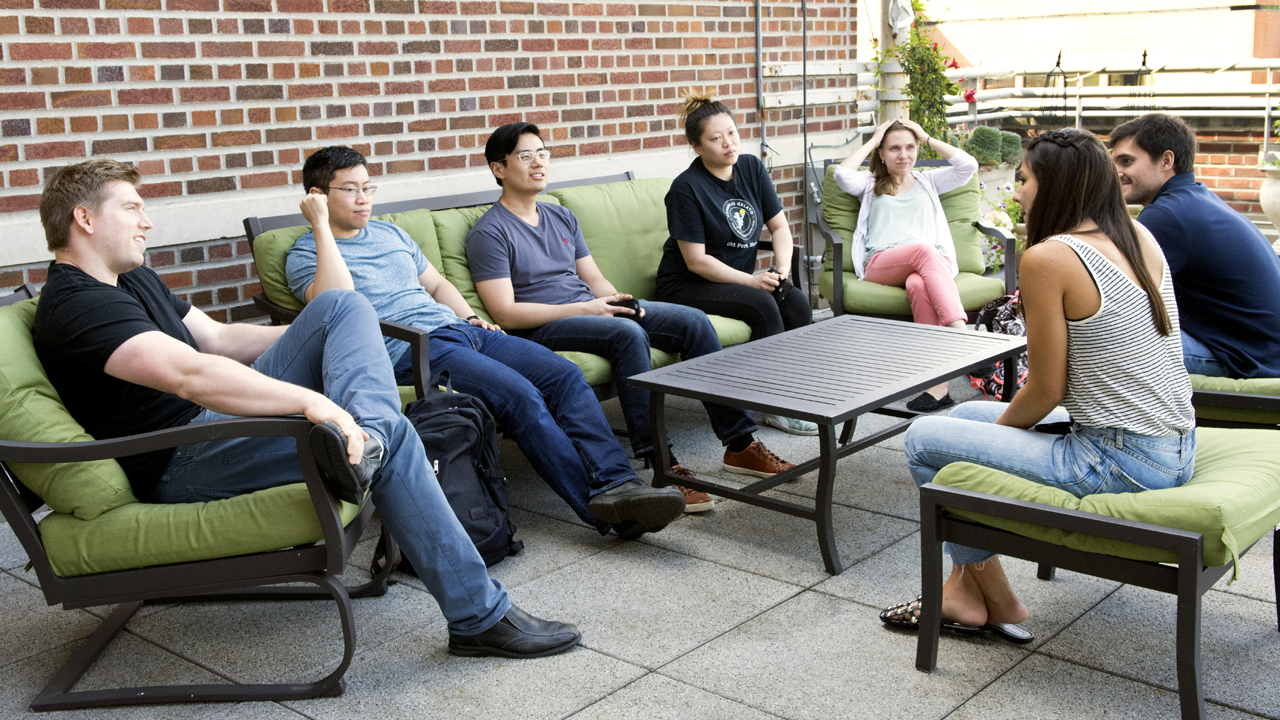
When Lake Superior Consulting (LSC) wanted to find out whether a new technology was the right fit for their business operations this summer, they brought aboard a team of consultants—graduate students from the University of Minnesota.
Natural gas and oil pipelines have an anticorrosive coating on the inside to prevent damage and leaks, but sometimes this coating is poorly applied or defective. LSC, a Duluth-based company that provides engineering and consulting services to the energy industry, tasked the U of M team with conducting a market and technical analysis to figure out whether a technology that detects gaps in this coating is effective enough and cost-efficient enough for the company to use.
“The key question they wanted us to answer was about the alternatives to the current technology for detecting gaps in the pipeline coating,” said chemistry doctoral student Suyue Chen, who managed the project. “They wanted to know about it from a technology standpoint, but also: Who is already doing this? What is the market outlook? Does the cost make sense?”
Chen and his team’s work with LSC was one of the five Economic Development Fellows (EDF) Consulting Program summer projects that came to a close last week. The EDF program, sponsored by the U’s Office of University Economic Development with support from the Graduate School, connects regional companies with graduate students, professional students, and postdocs seeking opportunities to gain experience in business consulting.
For about three months over the summer, teams of five students worked to solve a business challenge for their company. Each team was led by an economic development fellow—a graduate student who had previously been a consultant in the program and now served to manage a project, mentor the students, and facilitate communication between the students and their business clients.
Having participated twice as a grad student consultant in the program, Chen decided this summer to apply to become an economic development fellow. In leading the LSC project, he oversaw three students with a background in the physical sciences and two with a background in business. The opportunity gave him an idea of what it’s like to manage, coordinate, and motivate a team around a common goal.
“This was really a new experience to me, and I learned a lot about how to encourage communication between the consultants and company and how to navigate a team better,” he said.
All of the projects in the program wrap up with a final presentation or report from the student consultants to the company. For Chen’s group, that was a market and technical report of the pipeline coating detection technology that will help inform LSC’s decision on making changes to this technology is the right next step—both in terms of its effectiveness and its cost.
Nearly 20 other companies have participated in the EDF program since it launched in January 2016, with LSC being the first company outside of the Twin Cities to get involved. Tim Tripp, UED’s assistant director, said these companies span a variety of industries, including medical devices, biotechnology, pharmaceuticals, retail, and environmental technology.
“The program is a unique opportunity for students to gain hands-on, professional experience while still in school and without needing prior consulting experience,” Tripp said. “We encourage grad students who are interested in consulting to explore this opportunity and apply if interested.”
Fall Semester Kickoff
Interested in participating in the Economic Development Fellows Consulting Program?
Graduate students from all fields and disciplines are invited to attend a kickoff event on September 5, where companies will present on the six fall consulting projects available.
Consulting positions are unpaid and do not require previous experience. The time commitment is five hours a week.
Register for the kickoff event or contact frontdoor@umn.edu for more information.